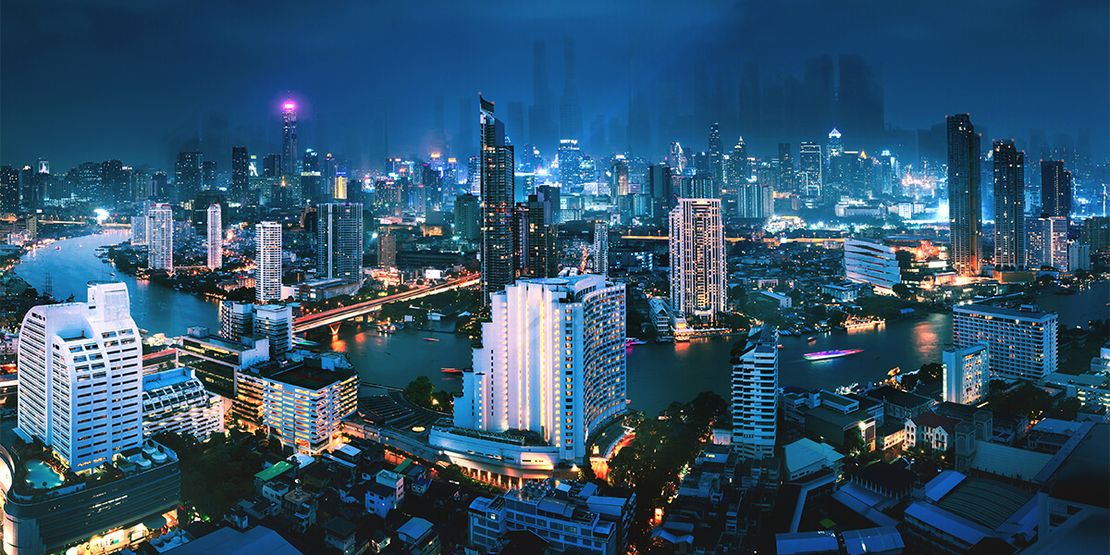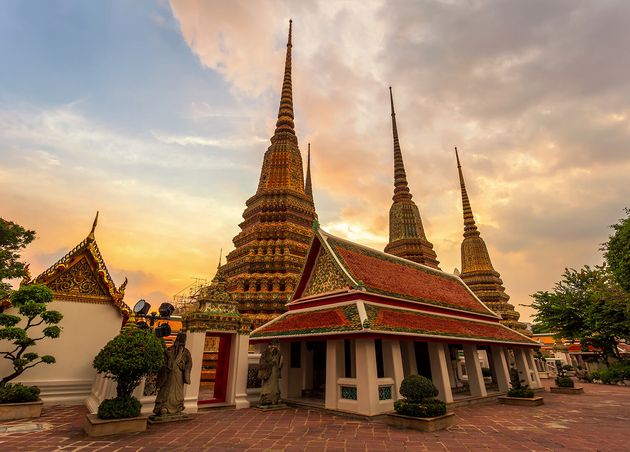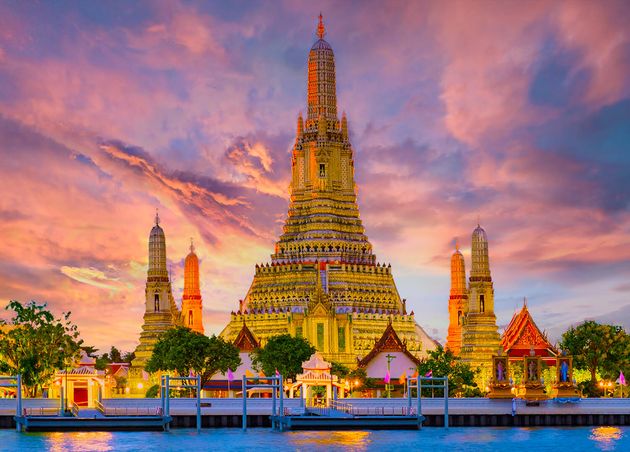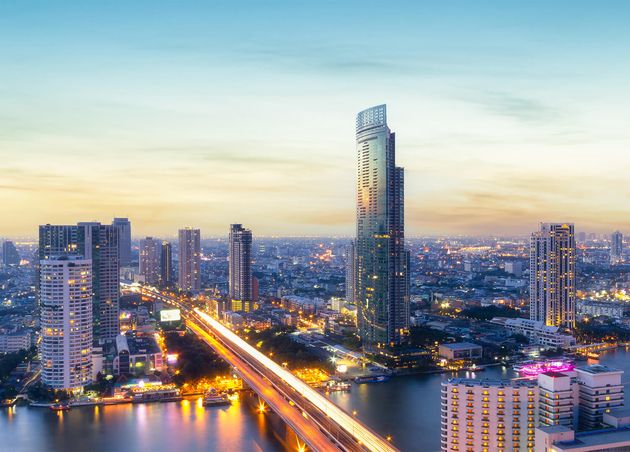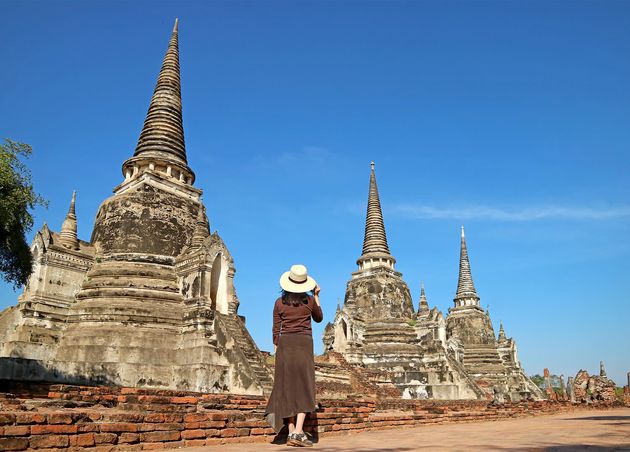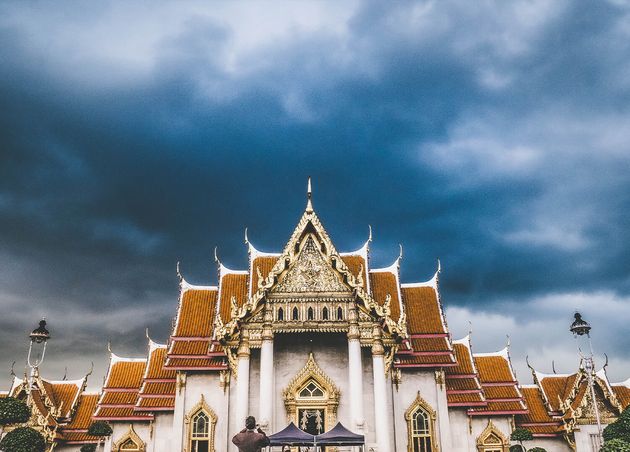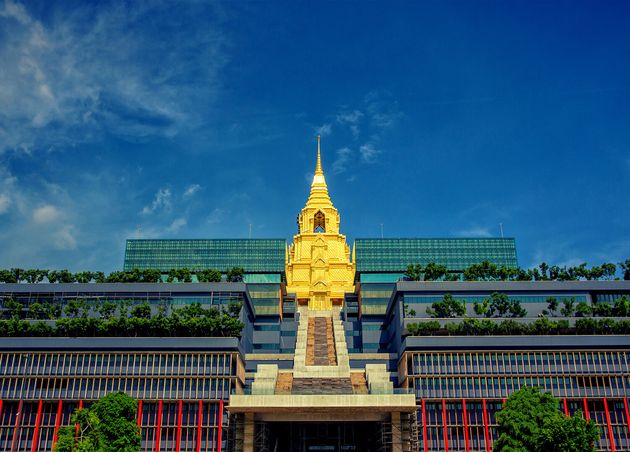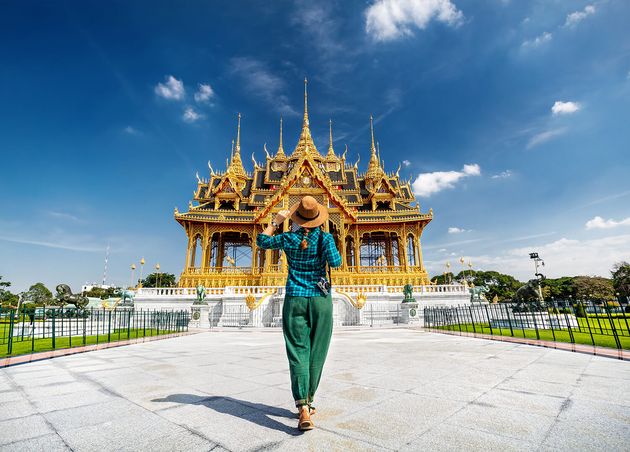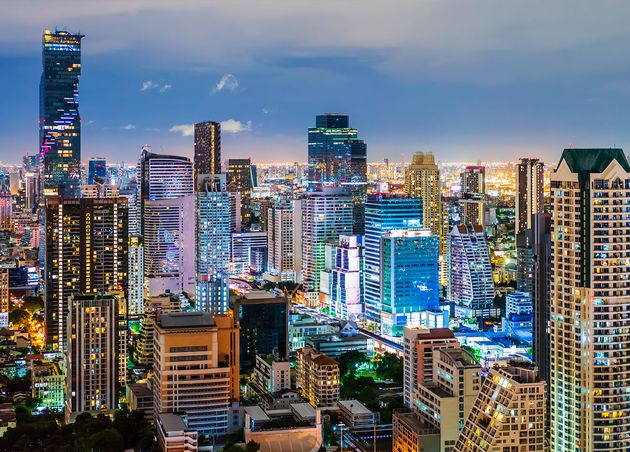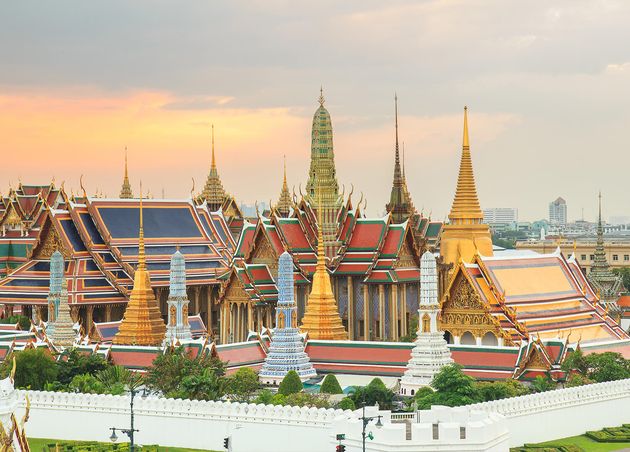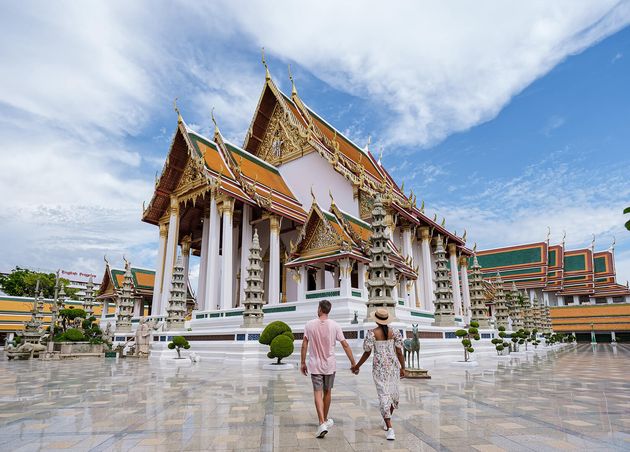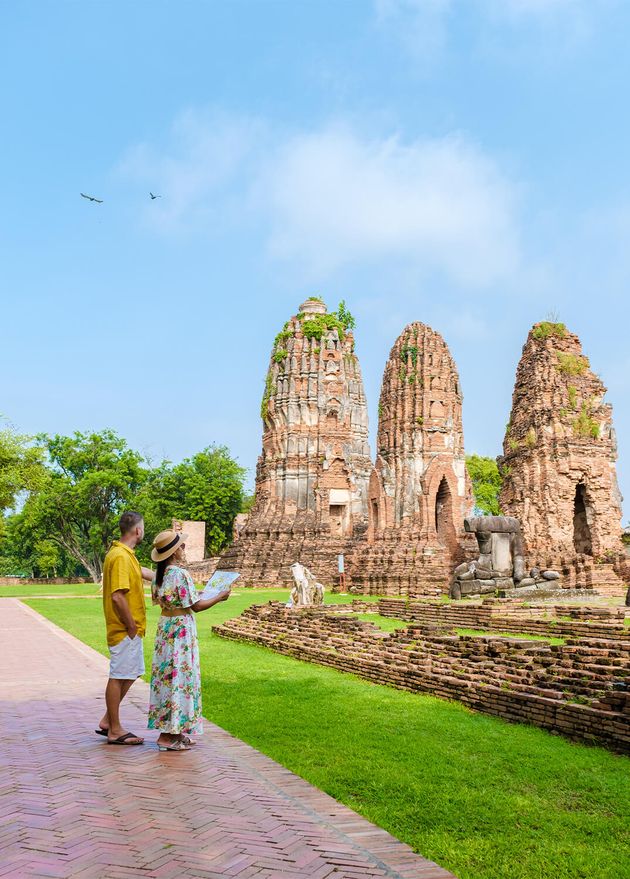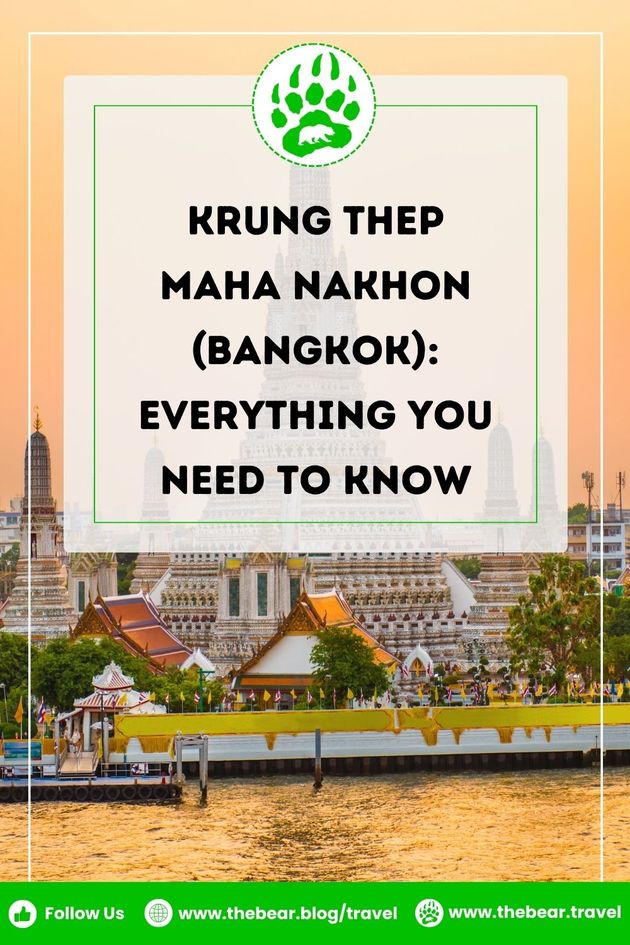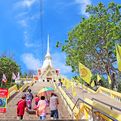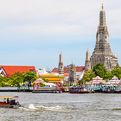Krung Thep Maha Nakhon (Bangkok): Everything You Need to Know
Do you remember the name of Thailand's capital city? Most foreigners would say "Bangkok" without uncertainty. Many locals, in turn, would say, "Krung Thep Maha Nakhon," which means "City of Angels" in Thai.
When most travelers think of the Thai capital, they conjure images of street food, bustling markets, and all-night parties, and they’d be right. But they don’t give a second impression of what the word Bangkok means or where it comes from.
Nevertheless, if you search into the word's etymology, you’ll learn that it has a relatively broad history and an amazingly long Thai name which is more than a mouthful to pronounce!
Read on to learn more about the lengthy name of this beautiful capital so you can show off your newfound Thai history knowledge to your friends and family or introduce the locals to your talent for the Thai language.
What is Krung Thep?
While in Thailand, you might have encountered the term "Krung Thep" used by Thai people. Krung Thep translates to "city of angels," the local reference for Bangkok. The term is composed of two parts: กรุง (Krung), signifying "city" or "capital," and เทพ (Thep), meaning "angels." You might encounter the phrase written as กรุงเทพฯ. The symbol ฯ indicates an abbreviation.
Krung Thep is an abbreviation for the full name Krung Thep Maha Nakhon กรุงเทพมหานคร. Here, มหา (maha) conveys "great," and นคร (Nakhon) signifies "city." Remarkably, the full name holds the distinction of being the world's longest city name!
The Complete Name and Translation of "Krung Thep"
So, the complete name of Krung Thep is actually Krungthepmahanakhon Amonrattanakosin Mahintharayutthaya Mahadilokphop Noppharatratchathaniburirom Udomratchaniwetmahasathan Amonphimanawatansathit Sakkathattiyawitsanukamprasit, and in Thai, it's กรุงเทพมหานคร อมรรัตนโกสินทร์ มหินทรายุธยา มหาดิลกภพ นพรัตนราชธานีบูรีรมย์ อุดมราชนิเวศน์มหาสถาน อมรพิมานอวตารสถิต สักกะทัตติยวิษณุกรรมประสิทธิ์).
This translates to "The City of Angels, the Magnificent Metropolis, the Timeless Jewel City, the Invincible City of God Indra, the Majestic Capital Adorned with Nine Precious Jewels, the Blissful City, Distinguished by its Splendid Royal Palace that Resembles the Heavenly Residence where the Reborn Deity Reigns, a City Bestowed by Indra and Constructed by Vishnukam."
The Evolution and Meaning of Thailand's Capital Name
The history of Thailand's capital name is a tale of transformations that span centuries. From its origins in Sukhothai during the golden age of Thai culture to its present-day identity, the capital city's nomenclature has undergone intriguing shifts.
- Early Capitals and the Birth of Bangkok
- During the golden age of Thai culture, Thailand's capital journey began with Sukhothai, its first capital city.
- Ayutthaya City followed, marked by the kingdom's expansion and the unique name that emerged during King Mongkut's reign.
- Thonburi, a strategic location, hosted the capital briefly before the optimal site across the Chao Phraya River was chosen, giving rise to modern-day Bangkok in 1782.
- The Olive Tree Connection
- Before the capital moved to Bangkok, the pre-capital region was called 'Bahng Gawk,' an area abundant in olive trees.
- Thus, the name 'Bangkok' can be traced back to this abundance of olive trees.
- It's fascinating to observe how the city's name found its roots in the natural environment, signifying a connection between its history and the lush landscape it emerged from.
- The Naming of Krung Thep
- When the capital shifted to its present location, King Rama I officially bestowed the name 'Krung Thep.'
- However, the name 'Bangkok' remained the prevalent and recognizable term used by locals and foreigners.
- This intriguing duality in naming has led to misconceptions about the origin of the name and its connection to the olive-rich area of 'Bahng Gawk.'
- Why the Name 'Bangkok' Persists
- The moniker 'Bangkok' blends linguistic history and geographical relevance.
- Rooted in Thai words like 'Bang,' signifying a village near a stream, and 'Ko,' referring to an island, the name reflects the city's intricate network of waterways, bridges, and islands.
- An alternate theory links it to 'Bang Makok,' which combines 'village near a stream' with the presence of the Elaeocarpus hygrophilous plant, an olive-like species native to the region.
- Irrespective of its etymological path, the name 'Bangkok' has stood the test of time, simplifying communication for travelers and allowing locals to guide newcomers easily.
- Exploring Bangkok
- Embracing Bangkok as a starting point for your journey is a gateway to immersing yourself in the heart of Thai culture, gastronomy, shopping, and lifestyle.
- While mastering the entirety of the city's full Thai name might be a linguistic feat, delving into the diverse tapestry of experiences the city offers allow you to connect with its vibrant energy and intricate history.
- Just as the city has transformed, your exploration of Bangkok will undoubtedly transform your perception of Thailand and its dynamic capital.
Government Influence on Thailand's Capital Name and Its Significance
Thailand's capital city, Bangkok, has recently undergone a shift in its official name under the guidance of the Thai government. The Office of the Royal Society (ORST), responsible for linguistic and academic standards, clarified that this change doesn't require English speakers to abandon the familiar term "Bangkok" in favor of the longer, local name, "Krung Thep Maha Nakhon."
The adjustment in punctuation led to confusion, with some speculating that the short form might be phased out. Through a statement on Facebook, the Royal Society clarified that the new directive only represents a stylistic alteration. When written in the Roman alphabet, the city's official name can be either "Krung Thep Maha Nakhon" or "Bangkok."
Despite this change, established signage, banners, and announcements, including those at airports such as Suvarnabhumi Airport, continue to employ the name "Bangkok." The abbreviation "BKK" remains used for boarding permits and other indications. Promoting Thai tourism activities and campaigns will also persist under the well-known name "Bangkok."
The name "Bangkok" has been used since 2001, specifically relating to the older parts of the city, encompassing the Bangkok Noi and Bangkok Yai districts. This name, widely recognized for generations by locals and foreigners, translates to "land with various hog plum trees" and is synonymous with the "Land of Smiles" due to its renowned cuisine.
On the other hand, the full Thai name, "Krung Thep Maha Nakhon," is an abbreviated version rooted in Pali and Sanskrit, reflecting more of a descriptive phrase than a conventional name. While some argue that this extended name is intricate and challenging to pronounce, it remains significant to Thais as the official name of their capital city.
The decision to include "Bangkok" within parentheses in the new guidance reflects a balance between preserving tradition and facilitating international understanding.
🧑🎓 Quick Trivia!
The Guinness World Records organization lists Bangkok’s long official name as the world's longest place with a whopping 168 letters.
Impact of the Name on the General Public
The term "Bangkok" has been in use since November 2001. It originated from a former area within Bangkok, which is now incorporated into the larger metropolitan region of the capital. Specifically, these areas are now known as the Bangkok Noi and Bangkok Yai districts.
In the same announcement, the ORST listed the official Thai spelling for other cities: the Thai names for Kuala Lumpur, Rome, Nay Pyi Taw, Kathmandu, and the Thai spelling for the State of Palestine.
As determined, the name change has sparked a flurry of reactions from the public, most of whom are doubting the need for the change, its effect on the tourism sector, and the possible confusion and outcomes it will bring about.
The Preference for "Bangkok" Over "Krung Thep" Among Foreigners
Foreigners commonly refer to Bangkok as "Bangkok" because the name has been used for where the capital city was originally established. Over time, the name "Bangkok" has become widely recognized and entrenched.
For non-Thai speakers using the Roman alphabet, "Bangkok" is a convention that simplifies communication. While the official and local name is Krung Thep Maha Nakhon, using "Bangkok" remains a common practice among English speakers and others who are not native to the Thai language.
That's the statement from Thailand's Royal Society, which is credible for academic and linguistic standards after a harmless change in punctuation in the official direction provoked an explosion of a belief that the city's name was being changed.
It began when the Cabinet upheld a Royal Society Proposal changing the way the capital would have pertained internationally from "Krung Thep Maha Nakhon; Bangkok” to “Krung Thep Maha Nakhon (Bangkok).”
As people strived to guess the meaning behind remaking the semicolon into parentheses, many put great weight on the accompanying description that it would “revise” the capital city's name and keep the “former” name in brackets.
Unveiling Thailand's City Names and Cultural Significance
In Thailand, city names are a fascinating journey into linguistic changes and historical importance. Beyond just Bangkok's intriguing name, other cities with interesting names offer insights into Thailand's diverse culture.
Take Nakhon Ratchasima, a key city in Isaan. While officially, it has a longer name; people commonly call it Korat. This shorter version reflects its ancient Khmer name, highlighting a rich history. Similarly, Udon Thani is often called 'udon,' showing the trend of using simpler names.
Exploring the language used in city names reveals some interesting patterns. 'Nakhon,' which comes from Sanskrit and means 'city,' emphasizes the urban aspect of places in Thailand. The recurring use of 'buri,' another term from Sanskrit, highlights the essence of a city in different names, showcasing linguistic variety. The word 'Chiang,' which has roots in Northern Thai, adds regional diversity, portraying the cultural blend in the country.
These names carry significant meanings that capture the essence of each location. For example, 'Bang,' found in 'Bangkok,' signifies 'a village by the stream,' connecting the city to its water-centric past. This linguistic link underscores how names can reflect a place's identity.
Thailand's collection of city names weaves a colorful tapestry of language, culture, and history. Each name tells a story, inviting exploration into the past that shapes the present. Just as Bangkok's name represents transformation, linguistic richness, and cultural importance, the names of other Thai cities also echo these layers, inviting travelers to discover the stories behind each unique destination.
🧑🎓 Vocabulary Time!
Confusion
: a state in which people do not understand what is happening or what they should do
Linguistics
: the scientific exploration of language and its underlying structure, encompassing the analysis of grammar, syntax, and phonetics
Parentheses
: represented as two curved lines that are utilized to enclose supplementary or distinct information that provides additional context or details
Sanskrit
: an ancient Indo-European language originating in India, known for its use in Hindu scriptures, classical Indian epic poems, and as a precursor to various northern Indian (Indic) languages
Stylistic
: relating to a particular style of doing something
Dr. Theodore (Professor Bear)
Hi! I'm Dr. Theodore Bennet (Professor Bear), your scholarly travel companion who brings history to life with immersive tours and expert guides. With a Ph.D. in History and years of travel writing experience, I offer authoritative insights for unforgettable journeys.
The Bear Travel | Experience like a Local
A fast-growing Thailand Travel Blog written by Expats and Thais since 2017. We will share our experiences and ideas from an insider point of view for you to create your own unique Thailand experience.
For the latest news and events about The Bear Travel, follow us on Facebook, Instagram, Twitter, Pinterest, or YouTube.
For any issues, concerns, or queries, don’t hesitate to CONTACT us.
Recommended for you
Top 10 Best and Most Beautiful Caves in Thailand
D (Big Bear)
Holidays in Thailand: Celebrating New Year’s Eve with a Bang
Marc Tubelleja (Curious Bear)
Travel to Hua Hin: An Exciting Day Trip from North to South
Shane, The Bear Traveler
Moving to Bangkok Guide: Everything You Need to Know
Lifestyle Bear
Using Rabbit Card in Bangkok: A Guide for Convenient Travel
Lifestyle Bear


